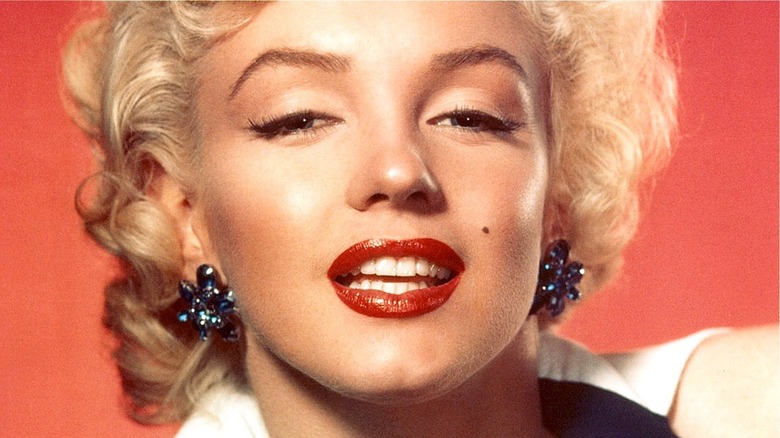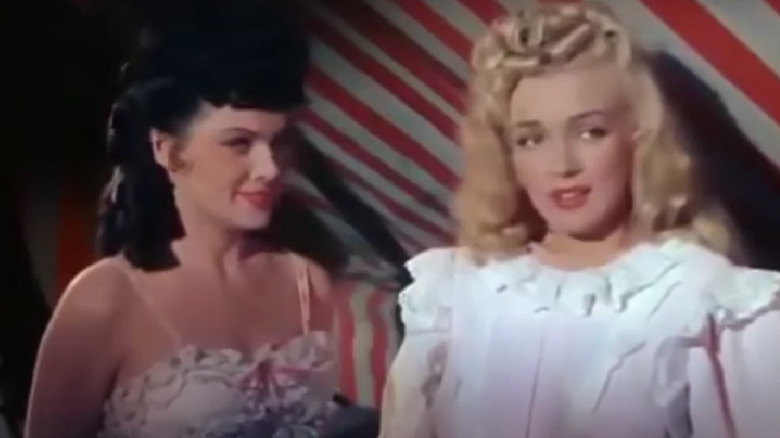Marilyn Monroe Barely Said A Word In Two Of Her Early Film Roles
The art of body language is essential to acting, and it's certainly an art that Marilyn Monroe mastered during her career. The lively but troubled legend has been grist for the media mill for decades now, which has spilled more ink over her than a squid has into the ocean. Despite that, it seems that there are always fresh facets or surprising factoids about the Hollywood legend coming to light.
Before Monroe's meteoric rise began with an eye-catching supporting role in 1950's "The Asphalt Jungle," she was just another struggling actor working her way through a string of bit parts, walk-on roles, and other assorted small appearances. Per IMDb, she made her screen debut in 1947's "Dangerous Years," where she portrayed a sardonic waitress named Evie who has a job at The Gopher Hole, a hangout favored by the movie's central teenage gang. Monroe gets a fair bit of screen time and a few lines, but that's not the case for all of her roles from this period. In fact, there are two early parts from Monroe's early career where she managed to make a striking impression without saying much of anything.
Monroe was nearly silent in these two small parts
During a 1955 interview with Edward R Murrow on "Person to Person," Marilyn Monroe recalled two of her smallest roles where she had virtually no lines. "Two I can think of — one in a picture called 'Ticket to Tomahawk.' I had one word — not exactly a word, I said 'mmmm,'" Monroe said with a laugh. The other was the film "Scudda Hoo! Scudda Hay!," which was released in 1948. "I had one word to say," Monroe explained. "I said 'Hello,' but it went fast. In fact, they cut it out."
Monroe actually misremembered her very brief appearance in "Scudda Hoo! Scudda Hay!", which did indeed make it into the movie. In the film, she says "Hi, Rad," the name of June Haver's character, while passing behind the actor as she exits a church. It's an extremely brief moment, but it captures her star quality.
The part in "A Ticket to Tomahawk," where Monroe plays a showgirl named Clara, is also slightly more substantive than she remembered at the time. She also says "Yes, honey?" to Connie Gilchrist's Madame Adelaide, who heads up the troupe Monroe's character is a member of and gets them involved in a conflict between a stagecoach line operator and an expanding train service. While neither film ranks high on the list of Marilyn Monroe's best movies, they are early examples of what made her one of the most iconic figures in Hollywood.

